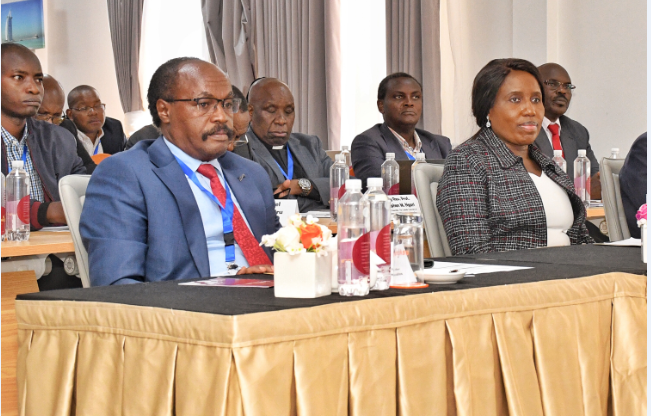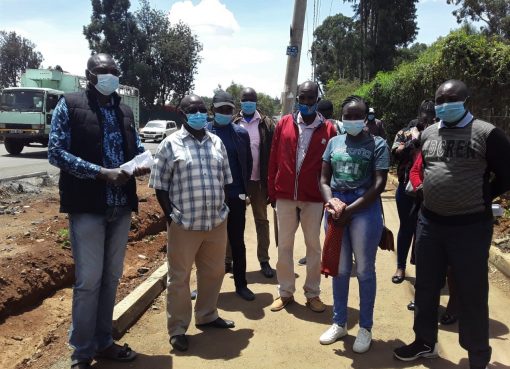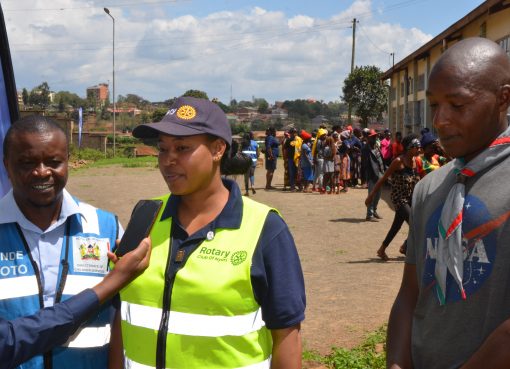Ministry of Education is consulting with Ministry of Finance and other stakeholders to have part of the huge pending bill facing Public Universities which now stands at over Sh75bllion waived, State Department for Higher Education and Research Principal Secretary Beatrice Muganda Inyangala has said.
Dr Inyangala said the report on the pending bills is now with the Pending Bills Committee and they were also discussing with Treasury and other stakeholders through a committee that was formed to see if Kenya Revenue Authority (KRA) can be allowed to waive the dues owed from Statutory deductions which were not remitted such as Pay As You Earn and National Hospital Insurance Fund (NHIF) due to lack of funds so that the universities can pay the other debts such as those owed to suppliers among others.
“We are also looking at escalating the issue of these pending bills to the Cabinet,” she said.
The PS was speaking to the media in Naivasha on Friday on the sidelines of a meeting with the local universities’ Vice-chancellors and Deputy Vice Chancellors (Academics) of all the universities in the country to deliberate on the preparation for the implementation of the Competency-Based Curriculum (CBC) ahead of the entry of the first cohort under the revamped curriculum in the year 2029. It was organised by the Commission for University Education (CUE).
The Education Cabinet Secretary (CS) Ezekiel Machogu was recently quoted saying the pending bills now totaling to Sh 82billion has accrued in the 32 public universities for over five to six years due to inadequate funding from the Government.
At that time the Government was using Differentiated Unit Cost (DOC) where the Government would pay 80 per cent of the total cost of the course being undertaken by every student regardless of their social- economic standing and the cost of the course being undertaken.
He noted that that due to inadequate funding, only 68 per cent of the total funding required by public universities was disbursed in that period of six years leading to accumulation of debts. But Dr Inyangala says the new funding model being used now has seen the Universities receive Sh 38billion more in their budget.
The increased funding, Dr Inyangala said is geared towards meeting the increased demands of facilitating and accommodating growing student numbers joining universities as well as enacting new programmes that meet jobs market demands for graduates.
Around 563,000 students were enrolled in universities in Kenya during the academic year 2022/23. The number increased from roughly 562,100 enrolled in universities in Kenya as at the beginning of the 2021 /22 academic year. Public universities rely largely on government subsidies to run their operations.
According to the funding report of the 2023/24 financial year from the Treasury, public universities received an allocation of Sh44,023,955,000 against a requirement Sh71,945,049,600 leaving a deficit of Sh27,921,094,600. This leaves the varsities with a deepening budget deficit totaling to Sh49billion.
But President Ruto was also quoted saying the Government will increase budgetary allocation to universities to Sh84billion during the 2023/24 fiscal year, which is an increase of 56 per cent but this funding has been faced with the challenge of shortage of enough funds at the Treasury.
During the media briefing, the PS said the Council of University Education is spearheading the roadmap for implementation of the CBC curriculum at Universities preparation ahead of the implementation of CBC system by 2029 when the first lot will join university.
Dr Inyangala said local institutions of higher learning continue to put in place adequate preparation measures to align their teaching curriculum to ensure it corresponds to the needs and creative demands of the new education system.
Consequently, she noted universities are consolidating their strengths towards instituting pathways for the implementation of CBC programmes that focuses on issues of sports science, creative arts, Science, Technology and Mathematics (STEM) with a view to nurture young talents.
The PS stated that the Commission of University Education(CUE) has drafted and adopted guidelines that will enable institutions to implement milestones to be achieved before learners under the new system join tertiary institutions.
CUE Chief Executive Officer (CEO) Professor Mike Kuria on his part said universities continue to put more emphasis on teacher education guidelines to guide and the review of existing curriculum to align them with the needs and demands of the CBC system.
On increased demand for extra funding from the exchequer, the CEO said local universities continue to lead the charge for resource mobilisation as well as sourcing for alternative funding including research proposals and grant sourcing from within the country and without in a bid to help the varsities.
In addition, Prof Kuria decried the shortage of professors and teaching fraternity with Doctorates of Philosophy (PHDs) noting that the government’s move to meet the demand for 1,000 PhD. students from local universities annually has not been realised due to their inadequate capacity.
He however said universities continue to implement new policies to enhance their human capacity including sponsoring their teaching staff to undertake doctorate studies abroad to ensure the country meets quality standards by reducing the teacher-student ratio.
The CEO reiterated the commission’s commitment to ensure universities meet the quality of training irrespective of where they are offered so that the labour market gets the manpower it requires.
Jomo Kenyatta University of Agriculture and Technology’s ((JKUAT) Prof Victoria Wambui Ngumi said her institution will continues to lead the charge in preparing and aligning systems, and teaching programmes to the new CBC system.
She said the university continues to enhance their collaboration with other local and international institutions in terms of writing proposals for research and to boost their grants base for extra resources.
By Mabel Keya Shikuku





